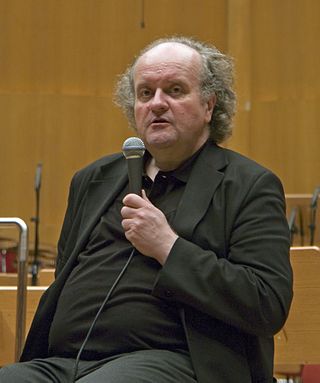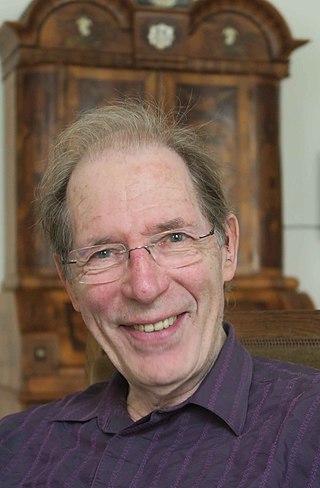Ulrich Mosch (born 1955) is a German musicologist.
Born in Stuttgart, Mosch first studied school music at the Hochschule für Musik, Theater und Medien Hannover as well as German Studies and musicology at the University of Hannover and at Technische Universität Berlin with Carl Dahlhaus and Helga de la Motte-Haber. He received his doctorate with a thesis on the musical listening of serial music.
From 1986 to 1988 he was assistant to the scientific director of the Funkkolleg "Musikgeschichte". 1989 to 1990 he worked as an assistant at the State Institute for Music Research in Berlin.
Together with Gianmario Borio, Mosch taught music aesthetics at the Darmstädter Ferienkurse for new music in 1990, 1992 and 1994.
From 1990 to 2014 Mosch was research assistant of the Paul-Sacher-Stiftung in Basel. There he was responsible for more than twenty-four estates and collections of music manuscripts and other documents of composers, including the collections of Igor Stravinsky, Luciano Berio, Hans Werner Henze, Helmut Lachenmann and Wolfgang Rihm as well as the collection of documentary films by Barrie Gavin. Mosch is a member of the advisory board of the magazine Positionen (Positionen. Texte zur aktuellen Musik).
In 2004 he habilitated at the University of Salzburg. In the winter semester 2014/15 he followed a call to the Université de Genève, where he heads the Department of Musicology. Since 2017 he has been a member of the board of trustees of the Ernst von Siemens Music Foundation .
Mosch is, among other things, the editor of the writings of Wolfgang Rihm and wrote numerous texts on music, music history and music aesthetics, mainly of the 20th and 21st centuries.

Wolfgang Rihm was a German composer of contemporary classical music and a teacher. One of the most influential post-war European composers, Rihm was alongside Helmut Lachenmann as among the leading German composers of his time. He composed more than 500 works and was particularly known for his operas. His early music was associated with the New Simplicity movement, but The Guardian described his later work as comprising a "bewildering variety of styles and sounds".
Friedrich Goldmann was a German composer and conductor.

Eva Rieger is a German musicologist. Rieger specialized in the social and cultural history of women in music. Together with the German-Swiss patron Mariann Steegmann, Rieger founded the Mariann-Steegmann-Foundation, which is dedicated to the advancement of women in music and the arts. In 2012, she was appointed Honorary Senator of the Hochschule für Musik und Theater Hamburg.
Anselm Gerhard is a German musicologist and opera scholar.
Rudolf Stephan was a German musicologist.
Gregor Herzfeld is a German musicologist.
Christoph von Blumröder is a German musicologist.
Hermann Danuser is a Swiss-German musicologist.
Joachim Brügge is a German musicologist and composer.
Helga de la Motte-Haber is a German musicologist focusing on the study of systematic musicology.
Arne Stollberg is a German musicologist and university professor.

Jürg Thomas Stenzl is a Swiss musicologist, and university professor.

Frank Schneider is a German musicologist.
Walter Karl August Serauky was a German musicologist and Handel scholar.
Jörn Peter Hiekel is a German musicologist.
Werner Wolf was a German musicologist and music critic. The acknowledged Wagner researcher was co-editor of Sämtlicher Briefe of the composer from 1967 to 1979. He also presented several opera performances. In 1981 he was appointed professor at the Leipzig University.
Daniela Philippi is a German musicologist with a research focus on Christoph Willibald Gluck, Antonín Dvořák and Czech music history and music of the 20th century.
Arnfried Edler was a German musicologist and university professor in Kiel and Hanover.
Günter Kleinen is a German musicologist and professor of musicology with a focus on music education and systematic musicology as well as music psychology.
Birke Jasmin Bertelsmeier is a German composer.